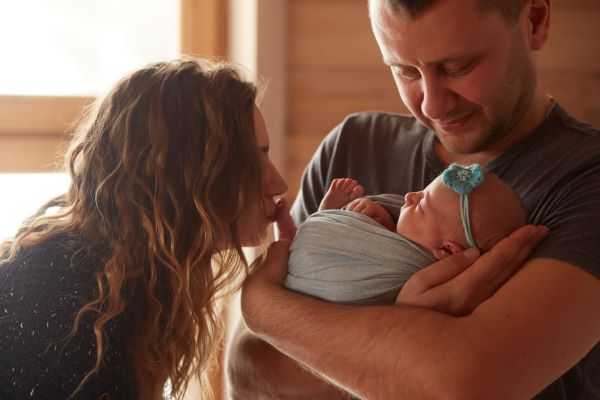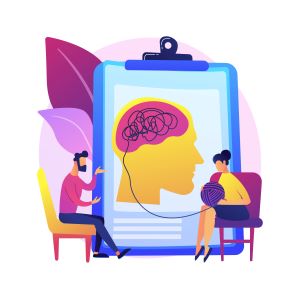Recently we passed the anniversary of 9/11. On Sunday night, I was watching football with my dad and we caught a few minutes of 60 minutes as they focused on 9/11 then and now. We both talked about where we were on 9/11/2001. Now I couldn’t say with any certainty what I ate for breakfast that morning but for the rest of that day and days after we can recall with amazing accuracy. For us, like many Americans, 9/11 was a meaningful and easy to remember day.
Why is that?
To understand why potentially traumatic events stand out, we got to go back to the cave people days. Our central nervous system is designed to spring into action in the fight or flight situations of saber toothed tiger attacks, attacks from other cave people groups and environmental threats such as snakes, mammoths and bears etc. In a nut shell, when our senses and brain perceives a threat, the central nervous system decides whether to run away or stand and fight. And this happens in a tiny fraction of a second.
If we fight then our body gears up to fight and the associated emotion is anger. If the decision in that tiny fraction of a second is to flee, then we rally the resources to run away. The associated emotion is fear.
Brain’s goal – keep us alive
Also from an evolutionary psychological perspective, our brain has a goal to keep us alive so that we can send our genes onto the next generation. Otherwise why would we care to outrun a lion, tiger, or bear? All animals strive to survive and us humans aren’t an exception.
One reason that we remember the most distressing events is so we won’t repeat a situation or recognize the danger in the future. Think of a dog that was abused as a puppy by someone kicking him. Even if removed from the abusive situation, he will shy away from anything that appears like someone kicking him as an adult dog. Human babies who were hungry as babies as adult tend to have food hoarding habits.
Brain is a Meaning Making Machine
When we are exposed to distressing events like 9/11 or the world wide shut down due to covid, or more personal events such as death of a child or rape, we begin to try to make sense of the experience. After these events we tend to alter how we view ourselves, other or the world around us.
These meanings that we make are thoughts that we have that are influenced by the events. Meanings are also influenced by other events in our lives, how we learned to respond to stress and our level of tolerance of stress. For illustration, let’s consider a couple who have lost an infant to sudden infant death syndrome. One parent’s meaning is that life is cruel and unfair and that so many beautiful things are taken. The other parent’s meaning is that though unfair, there is still much beauty and that the pain will subside with the support of family, friends and faith.

The reason for the different reactions is each individual’s beliefs prior to the event as well meaning that they made from other distressing events that they may have had in their lives. Because of these differences in how we all think and make meanings there are many different beliefs that we can make from distressing events.
Let me ask…
If you lived through 9/11, what beliefs did you have before and then after? Did you re-evaluate aspects of life as a result? Can you imagine that people from other countries had different beliefs resulting from that same event? Same with covid shutdown, or a mass shooting or any other distressing event. Did you re-evaluate some aspect of your life as a result? I know post-Covid I don’t travel as much as I did pre-Covid.
Not all Meanings Are Negative
How many examples did we have of people pulling together in both 9/11 and Covid 19 shutdown? In the days after 9/11, people opened their wallets, donated blood, and volunteered. We also saw that many made meaning out of the event by joining the military in an uptick of patriotism. During the shutdown due to covid, people transported goods from farms to local communities, shopped for elderly neighbors, and opened their wallets especially to food banks.
“Everything Happens for a Reason”
Often people will claim that “everything happens for a reason.” This is a problematic idea. We tend to begin looking for a meaningful reason whether spiritual, magical or existential in distressing events in life. I worked with a woman who lost her 26 year old daughter to covid virus. She kept saying that there had to be a reason and in her case she was focusing on the spiritual. That statement is inaccurate and as a result created so much unnecessary pain for her. She couldn’t understand why a god would take her daughter.
“Everything has a Cause”
The better statement is that everything has a cause. Her daughter’s death was caused by a virus. The death of the people in 9/11 was caused by a terrorist attack. 6,956,900 deaths were caused by Covid 19 worldwide.
In the case of a rape or other personal attack, when we look for the deeper meaning we may come to some very troubling conclusions. In the case of a rape, the woman may believe the reason was her clothing or going out with friends – some deficit within her – for the rape. If we instead think in terms of cause, the rape occurred because the rapist acted on his thought of sexually assaulting someone or her specifically.
Our Brain Loves Shortcuts
Think about when you were learning to ride a bike or drive a car. Most of us made lots of mistakes. But with practice, we got better and better. We practiced both the actual driving and also mentally practiced. That process of learning is repeated with every new task that we learn. Once we learn to drive we don’t get into the driver’s seat and wonder, “Do I know how to drive?” Our brain stores that information so that when we need to drive, that information (in a healthy uninjured brain) is right there learned unconsciously and available.
By the time we are young children we already have experiences that has taught our brain about reactions. We see caregivers and siblings and how they react and receive information as to what gets us attention and what doesn’t work. If reactions aren’t challenged then they tend to persist as we grow up. That way if we are confronted by a situation that we have already had in the past, we already have a response. If someone takes young Suzi’s toy and tears and a fit get it back, then Suzi learns that her reaction is effective. Then teen and adult Suzi may cry and throw a fit when she doesn’t get her way.
Brain Also Loves Associations
We often connect emotions to experiences and that association is then used to in a sense to organize our memories. Think back to a random day last week. What did you do? What did you eat? For the majority of us that isn’t going to bring up much. Now think of a time that you were embarrassed. I bet you remembered a time in junior high. If you had several experiences, you likely recalled those.
The stronger the emotion, the more likely it will be recalled and in more detail. When working with couples they can easily recall how they met and what was going on that was so special. They also recall why things are now so bad. They can recall births of children, deaths of parents and other close people. All of these moments have one thing in common – strong emotional connection. Most of us can’t remember the routine work days more than a week or two later. We often have to connect the mundane to a memory that had a strong emotional experience to recall anything about the mundane event.
Sudden Shock and Confusion
Little Miss Muffet Sat on her Tuffet eating her curds and whey. There came a spider who sat down beside her and scared Miss Muffet away. This nursery rhyme is an excellent example of fear and association. Miss Muffet was minding her own business and only thinking of eating. The spider didn’t call out to her warning of it’s visit but simply appeared very close to her. She was in sudden shock of the appearance and confused as to why it was there next to her. Her central nervous system kicked in and she ran away.
When sudden shock and confusion are present, the brain quickly associated fear to spiders and stores the memory for later recall. In this example since there was sudden shock and confusion she now remembers that ordinarily mundane day. Additionally thanks to associations, the brain associates that fear with spiders and she is very likely now scared of spiders.
If you can easily recall the events of the morning of 9/11, you can thank the way our brain remembers these events. I was completely shocked to see the footage of the plane flying into the tower. The confusion of why a plane would do that was also present. We hear of and see plane crashes, but this wasn’t a typical plane crash or on a typical behavior of planes. Since both were there for me, I remember that morning with amazing clarity. I couldn’t tell you what I did the morning of 9/10 but 9/11 is etched in my memory even twenty-two years later.
Putting it altogether
As we endure large scale of far more personal distressing events, we make meanings from those experiences. The presence of sudden shock and confusion with an experience results in instant learning. We don’t require repetition like we do with other tasks such as learning to drive, but instead the memory, the associated emotion is moved right along to long term storage. The result is that anyone that was strongly affected by an event such as 9/11 or covid shutdown will remember the event, re-experience the associated emotions and will very likely create or deepen beliefs about themselves and/or the world around them.
Distressing Events Don’t Automatically Lead to PTSD
PTSD stands for post traumatic stress disorder and describes symptoms that occur for some people after being exposed to a distressing event for that person. First thing to understand is that there isn’t any distressing event that is automatically traumatizing or will lead to PTSD diagnosis. Predicting who does and who doesn’t present with symptoms of PTSD after a distressing event is at best guess work. When we understand the role of meaning making and how distressing events are quickly learned, we can better understand why some people have problems long after the event occurs.
For those people who do present with PTSD symptoms after distressing events, it is likely that the meaning that they made from the event is part to blame. Remember the example of the death of a child from earlier? The parents were very likely in shock and confused when they found their child unresponsive, so the memory is instantly learned. As humans, each parent made meaning from the experience. The parent who believed that with support and faith they would once more find the beauty in life isn’t likely going to the parent that presents with symptoms of PTSD.
However the other parent who believed that all the beauty in the world is ripped from them and it is so unfair, will at minimum be anxious about what will be taken next and sad about what has been lost. If they have a history of loss, they may become “on guard” for what else could be taken, refuse to become to close to new people or/and pull back from loved ones. From a Rational Living Therapy perspective, the diagnosis of PTSD is understood by these processes of the brain and our individual meanings made from the distressing events.
Want to learn more?
Would you like to learn more about trauma and the brain? Click here for a free webinar. Yes, it really is free!
If you would like to know more about how to work with me, Click here.
Be alerted to new material first!
 Skip to content
Skip to content


